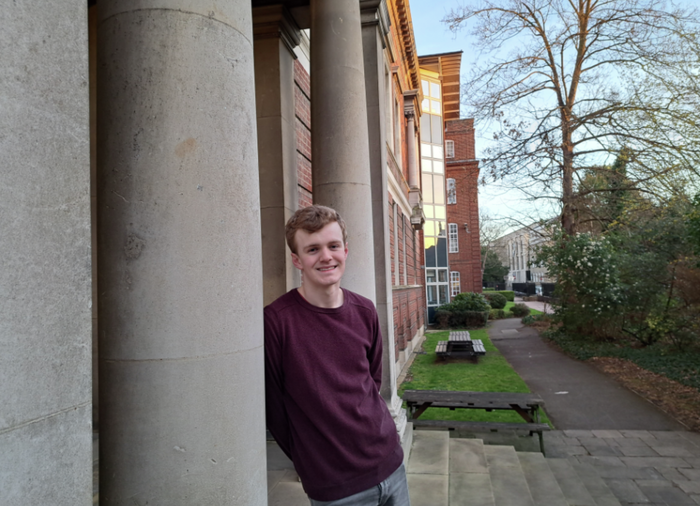‘We should continue to learn at all times’: in conversation with Baroness Dambisa Moyo
Sophie Denny talks economics, travel, and imposter syndrome with eminent economist and author, Baroness Moyo

Walking into the Union wearing an eye-catchingly red two-piece suit and warmly meeting the welcoming party before immediately finding a quiet corner for us to sit down and talk, Baroness Moyo’s no-nonsense, energetic nature was immediately apparent. Her efficiency seemingly embodied how she became such a successful economist and author.
“I was just so incredibly naïve … there was so much more for me to learn”
With her thriving and varied career, including roles at the World Bank and Goldman Sachs, as well as being a board member for numerous huge organisations, I ask Moyo whether she ever experiences imposter syndrome. “Everybody has imposter syndrome”, she tells me: “It’s more important what you do about it. You’re always going to be new in different contexts … and I think it’s our responsibility to step up and make sure that people understand we have something to contribute”. It may be a cliché, but knowing your worth is key to the Baroness.
Reflecting on the beginning of her career at the World Bank aged just 23, Baroness Moyo remembers how she thought she “knew everything”: “I was just so incredibly naïve ... there was so much more for me to learn”. While glad to have that experience, she tells me she now realises how much she didn’t know; after receiving a life peerage last year and meeting people in the House of Lords, she was reminded she still has a lot to learn. Nevertheless, she remains undaunted.
“We need to be much more inquisitive, much more curious about humanity”
Moyo tells me how she is “at the crossroads of many different perspectives”, with her experience of travelling widely and working in both the private and public sectors, as well as with NGOs, showing her the importance of remaining open-minded and constantly questioning the limits of our knowledge. “We need to be much more inquisitive, much more curious about humanity”, Moyo asserts. “I’m never prepared to the point where I think I know the answer, because the world is full of puzzles and questions that actually should challenge who we are and how we think”. Her zeal for learning is abiding: “the most thrilling thing about being in the world and having these opportunities is being able to understand that we should continue to learn at all times.”
In the Off The Agenda Podcast, Moyo recently spoke about the limits of her education not being grounded enough in history. How important is it then, for current students to relate their learning to its historical contexts? “Hugely important”, she proclaims: “It makes us smarter, it helps us understand not only about what possible risks might emerge, because I do believe sometimes history does repeat itself, but it’s also about understanding how far we’ve come”. Even for STEM students, it is “priceless” to have a historical awareness of your subject; if she could go back in time, Moyo “probably would have done a history degree” in addition to chemistry and economics.
Moving onto the pressing issues current economics and politics students will face when they graduate, Moyo reels off a list: economic growth, the climate crisis, healthcare, AI — the list goes on. The Baroness believes at the forefront of approaching these challenges is the importance of keeping an open mind: “It’s understanding the traditional and canonical models of economics and politics, but also making sure we can adapt them to reflect the current environment and the environment that’s coming”, she says, noting the dynamism required if we are to keep up with the rate of human evolution. The world’s population has more than doubled in the last sixty years, and so thinking ahead and mitigating against future issues is more important than ever. Nevertheless, it is paramount that we do not get “impatient and angry”: we must remember how far we have come.
Moyo ends by offering advice to students aspiring to follow in her footsteps: “First of all, don’t believe everything you read. Get your passport and go and travel. Go and see the world, interact with people from different backgrounds, understand why things exist in different places that don’t comport to the way you think the world should work”.
Having travelled to over 80 countries, she is passionate about its benefits: “the best thing I ever did was travel”. If you’re looking for a reason to jet off somewhere new, this is it.
 News / Cambridge received second highest volume of university donations15 March 2025
News / Cambridge received second highest volume of university donations15 March 2025 News / May Balls flog to Emma students after cancelled June Event15 March 2025
News / May Balls flog to Emma students after cancelled June Event15 March 2025 Features / Finding solace in the pets of Cambridge15 March 2025
Features / Finding solace in the pets of Cambridge15 March 2025 News / Ivan Alexei Ampiah wins Cambridge Union presidency 16 March 2025
News / Ivan Alexei Ampiah wins Cambridge Union presidency 16 March 2025 News / Pro-Palestine activists stage sit-in in Barclays16 March 2025
News / Pro-Palestine activists stage sit-in in Barclays16 March 2025






